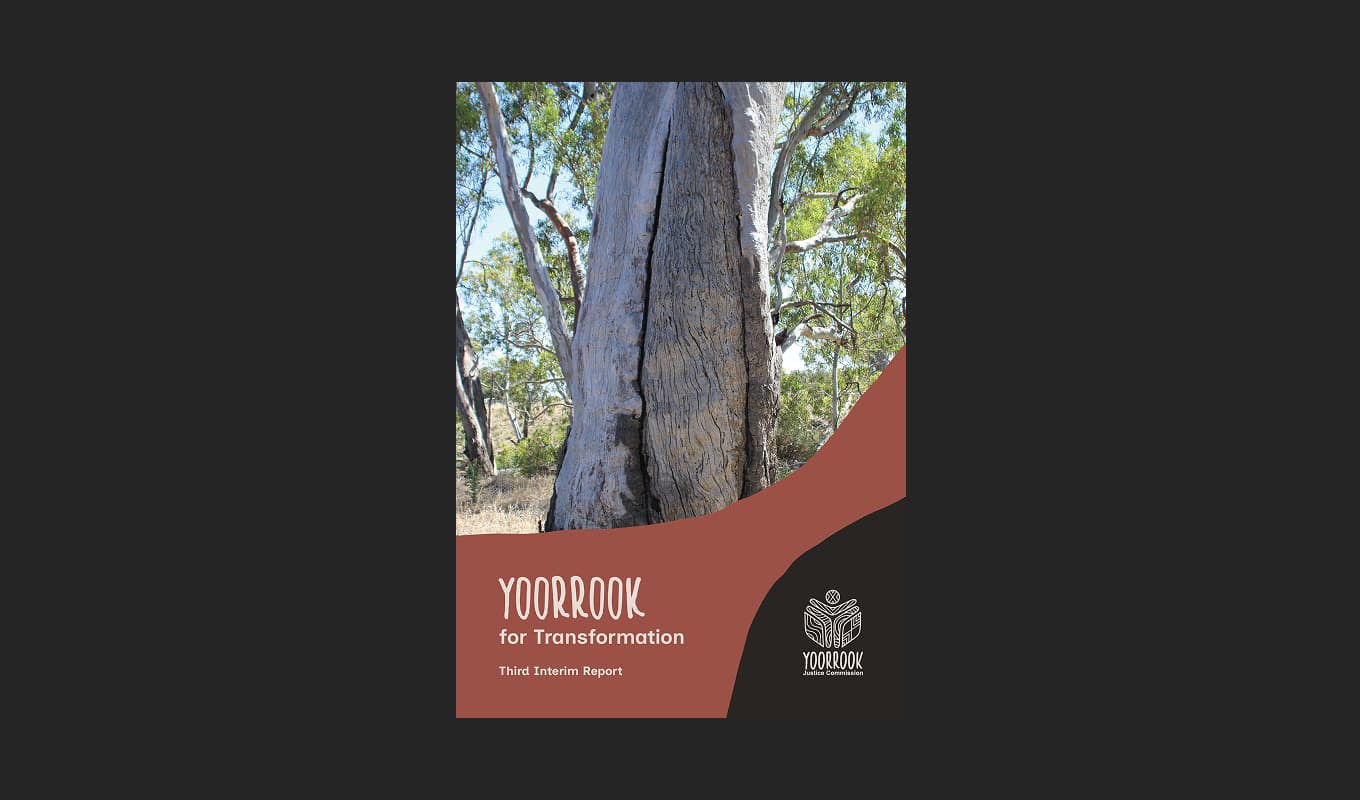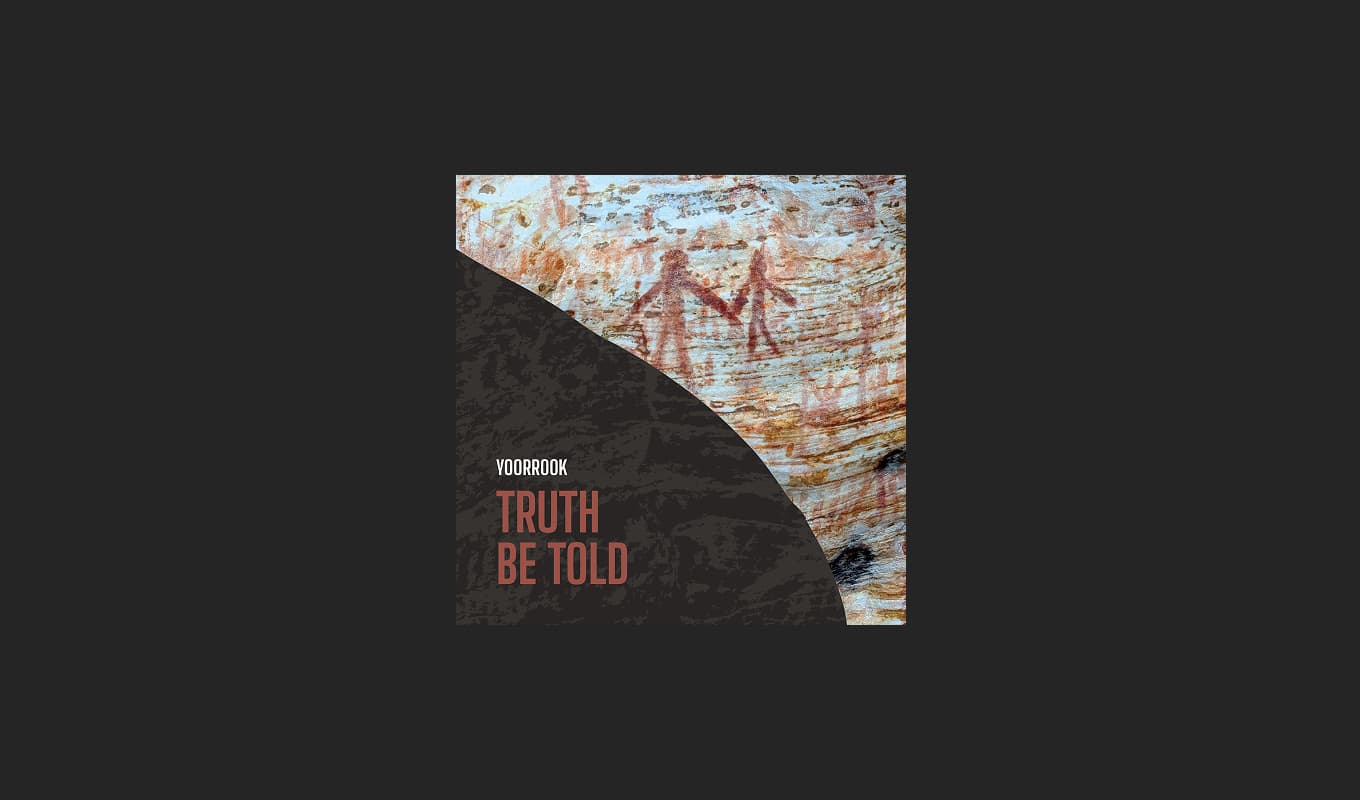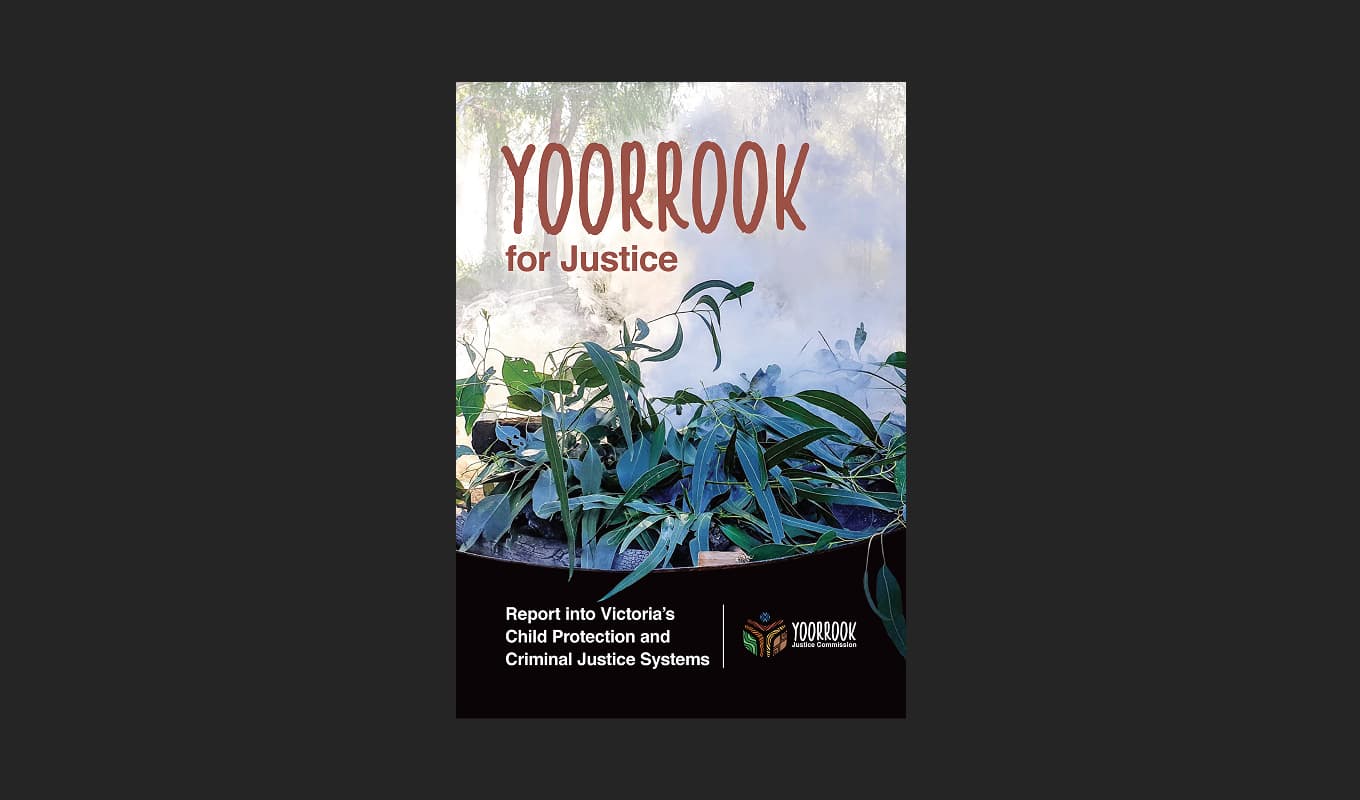Jennifer Mason and Lowanna Moore
Jennifer Mason is a Wamba Wamba and Dhudhuroa woman. Lowanna Moore is a Wamba Wamba descendant. In this video submission, they discuss how First Peoples’ history could be better taught in schools through empowering culture. They reflect on barriers in the education system for Aboriginal people, self-determination, and the effect of the loss of land on intergenerational wealth.
Submission Transcription
Well, I actually live in the ACT, but I spend a lot of time in Victoria because I’m a director of the Wamba Wamba Aboriginal Corporation. So what we see in particularly after the referendum is racism has increased in our region in Wamba country, and people are suffering more as a result of that. So it would be really good to see some education around you know, really empowering our culture so that people can see the value and not draw on these old stereotypes that are a hangover from colonisation.
Look. Self-determination. Like, there’s lots of different layers of that again. And you know, I think the first part of that is people have to be heard, you know. Lowanna mentioned it before. People have to be heard. They have to, you know, be able to tell their story and actually feel like they’ve been heard to to that’s the first step of self-determination is to be heard. Do you want to add to that? Because I’ve lost my train of thought
Well, I suppose if I go back to what I said before about my great grandfather. So my mother you know was subjected to being taken away by her husband from her family. And she lived in poverty. And for most of her life, she was running from my father because he was not a nice man. And she didn’t have that family support because of the policies of colonisation and how, you know, people, if they looked a little bit whiter than other people, they had to pass off, as you know, living as a white person. So you know, she didn’t have that support. And then that was just transferred to me who didn’t have that support. And then that’s been transferred to my kids because I didn’t have that support. You know, so this is where that the loss of land. Had we had that intergenerational wealth from that land, then our lives could have been different. You know, we had to fight hook and nail for everything that we’ve got. Yeah.
Well, first of all, we could have Aboriginal people like us, our mob going in and teaching the teachers, because at the moment there’s like this national curriculum that has these cross cross-cultural priorities, but it’s down to the individual teachers to have the knowledge to be able to teach that in the schools. So a lot of them don’t have those resources because we weren’t taught that in school. You know, like I was taught American history in school. I didn’t know anything about my culture, you know? So that we’ve got to do resources like that. So and I think
empowering our people, giving us the opportunity to have our people go out and educate teachers is going to be a big start to changing some stereotypes. Yeah.
It’s layered. It’s totally layered like it comes from, you know, loss of land, for example. So my great grandfather had land, but then it was taken from the state because he didn’t pay taxes. He did pay taxes, but he didn’t pay taxes for enough people that were living on land. Right. So and this didn’t just happen to him. It’s not isolated to him. It happened to a lot of people from that era. So that intergenerational wealth that you have from your land that enables you to be able to educate your children and know your history, know this unbroken history, but we
10 don’t have that. So that’s a really big problem. We’ve got to educate our people first. So we need you know, extensive support to be able to you know, piece together our history from our people, but also from, you know, our, our research led. But it’s difficult because if you consider in the 2021 census, Aboriginal people in Australia are like 3.88% of the country. In Victoria, Aboriginal people are 0.028% of that just under 4%. So the people that are actively doing stuff are really minimal. So we don’t have the people, we don’t have the resources and we don’t have the money. So we unfortunately comes down to money, you know, that can help us be able to lead that kind of education for our people and empower our people, you know, to do that. So
It’s layered. It’s totally layered like it comes from, you know, loss of land, for example. So my great grandfather had land, but then it was taken from the state because he didn’t pay taxes. He did pay taxes, but he didn’t pay taxes for enough people that were living on land. Right. So and this didn’t just happen to him. It’s not isolated to him. It happened to a lot of people from that era. So that intergenerational wealth that you have from your land that enables you to be able to educate your children and know your history, know this unbroken history, but we
10 don’t have that. So that’s a really big problem. We’ve got to educate our people first. So we need you know, extensive support to be able to you know, piece together our history from our people, but also from, you know, our, our research led. But it’s difficult because if you consider in the 2021 census, Aboriginal people in Australia are like 3.88% of the country. In Victoria, Aboriginal people are 0.028% of that just under 4%. So the people that are actively doing stuff are really minimal. So we don’t have the people, we don’t have the resources and we don’t have the money. So we unfortunately comes down to money, you know, that can help us be able to lead that kind of education for our people and empower our people, you know, to do that. So
Truth-teller consent
Contact us about this submission
Contact us if you’d like to discuss this submission.
Similar submissions
Explore submissions from other witnesses that discuss similar topics.
Steph Tashkoff
Steph Tashkoff, a teacher, describes the ongoing impact of colonisation and stolen land she sees first-hand on young Koorie people. She highlights the... more
Anonymous 1491
The author decided to make this submission as they believe their early education and experiences would mirror those of many other non-Indigenous Austr... more
Anonymous 1480
Anonymous 1480 migrated from Aotearoa to Australia in their teens at a time when many people like them were labelled as ‘half-caste’ and vilified in t... more
Reports and Recommendations
Read the official reports and recommendations of the Yoorrook Justice Commission.

Yoorrook for Transformation
Third Interim Report: A five-volume comprehensive reform report presenting evidence and findings on systemic injustices, and specific recommendations for meaningful change to transform the future.

Truth Be Told
An official public record that documents First Peoples experiences since colonisation, preserves crucial testimonies for future generations and creates an enduring resource for education and understanding.

Recommendations for change
Yoorrook Justice Commission’s recommendations for truth-telling, justice, and systemic reform in Victoria.
